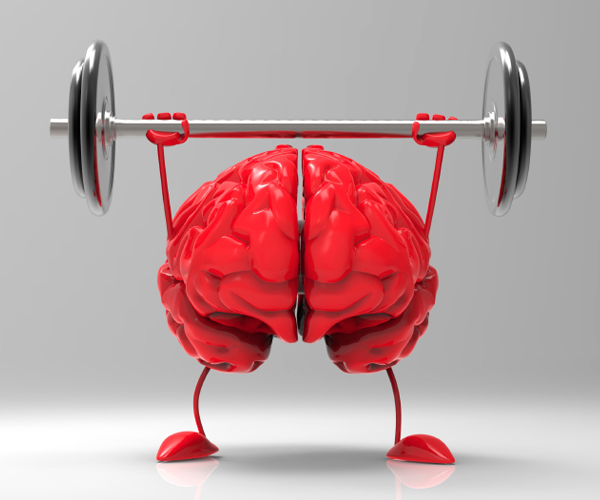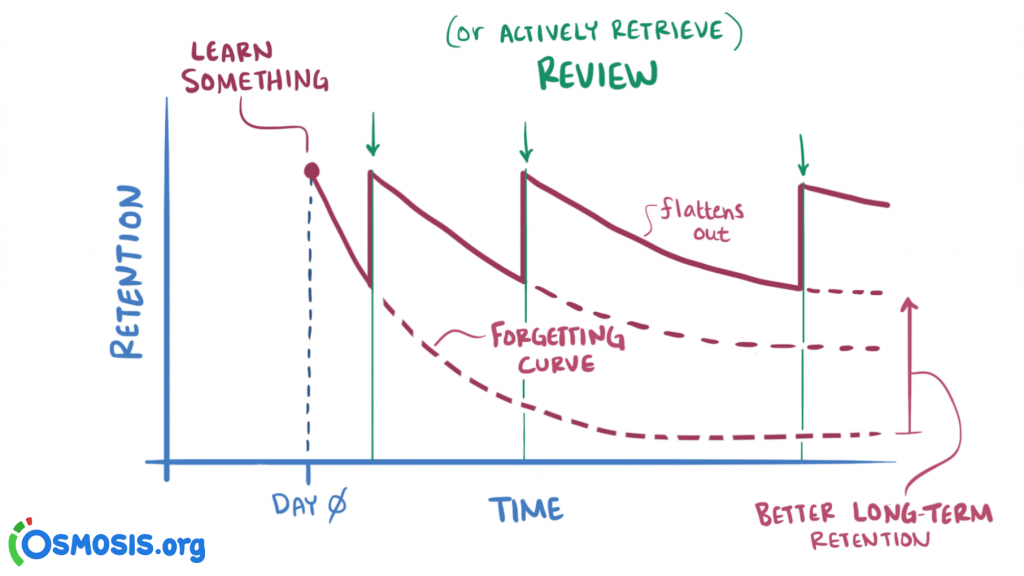The garden of academic success comes with its own prickly thorns like failures, disappointments, an arduous journey of nerve-wrecking tests and examinations and so on. It is absolutely essential for students to maintain their sanity, stay calm and composed and ensure that they put in the best practices to work hard with determination.
Cognitive fitness cannot be achieved easily as it requires lots of practice and commitment to make the necessary changes no matter how difficult it may be. In order to stay focused and study efficiently, it is of utmost importance for students to understand that they need to maintain self-discipline and incorporate some practices into daily routine which will enable them to excel.

Source: Health.harvard
So, let’s take a look at the strategies that students can adopt to push their thinking and information-processing to the next level; beyond expectations.
#1: PROCESSING THE INFORMATION
The first step to effective learning is to process newly presented information well. This means students need to pay attention during their classes in school and be attentive during their online tuition or private tuition session as well. It is absolutely necessary to be a good listener as that will enable the information to seep into the mind and settle in.
After listening to a lecture or after a tuition session, the next step in processing the information would be to review the material. The basic way of reviewing would be to read through the material and though it’s a passive way of learning, it is necessary to get through this.
Source: cccblog.com
Following this, students need to move on to question themselves if they actually understand the content or not. The best way to find out would be to teach someone. When teaching someone, students need to process the information in such a way that it is pieced together without logic gaps. Should there be any doubts, it would be best if students could seek clarification from their tuition teacher immediately to prevent doubts from snowballing.
#2: SPACED REPETITION
A smart way of studying would be to space out the chunks of information for repetitive revision to make sure that the “forgetting curve” does not get the best of us. Our brain stores information and pushes the important pieces of details to the frontline when we decide to revisit them frequently.

Source: Elitemedicalprep
So, for example, if you study a chapter on genetics in molecular biology, it would be great if you could make your own set of condensed notes or flashcards (which contributes to active learning) and ensure that you revise though those notes the next day, the day after, and slowly increase the number of days for intervals.
Soon enough, the information would seem to be ingrained in the mind and revision time would be reduced by many folds as there is increased familiarity with the material since it has been reviewed multiple times.
#3: TAKE CARE OF YOUR HEALTH
Your health contributes to your mental strength and it will reflect in your academic performance. Late-night study sessions that run past midnight is counterproductive as no matter how much students can justify their actions by saying that they are “night-owls” it an unfortunate fact that going against the circadian rhythm of the body has detrimental effects on health.

Source: Encounterswiththeworld
Going to sleep early, rising before sunrise to start the morning off with some physical exercise, eating healthy, remaining hydrated and most importantly, staying positive is highly important. A healthy body and mind will make a huge difference in a students’ intellectual ability!
BOTTOM LINE
Being “smart” is not all that easy as it comes with practice and dedication. This certainly takes a lot of time and persistence and hence it is essential for students to remain determined no matter how arduous the journey is!

